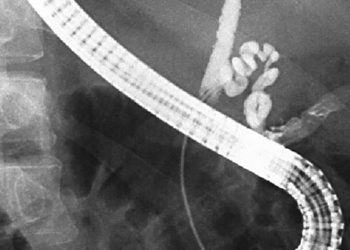Higher BMI in girls correlated with early pubertal development
Image: PD
1. Girls with a body mass index (BMI) > 50th percentile were noted to have earlier age of onset for breast development when compared to girls with lower BMI.
2. Non-Hispanic white girls had earlier age of pubertal maturation when compared to prior studies, though this was thought, in part, to be due to increasing BMI.
Evidence Rating Level: 2 (Good)
Study Rundown: Previous cross-sectional studies have noted an earlier onset of pubertal maturation in girls. Such a phenomenon is linked with psychosocial factors (low self-esteem, depression), certain cancers (breast, ovarian, endometrial), and development of insulin-resistant diabetes. As established literature is limited by its cross-sectional nature, this study was designed as a prospective cohort analysis examining the onset of breast development. When stratified by race, African American girls underwent breast development at the lowest mean age, followed by Hispanic, white non-Hispanic, and Asian girls. A lower age of onset was noted in non-Hispanic white girls in comparison to studies from 10-20 years earlier, though no difference was noted when just comparing girls with BMI < 85th percentile. No significant difference in age of onset was noted amongst African American girls. Onset of breast development was earlier in girls with greater BMI in comparison to those with lower BMI, regardless of race. Study enrollment was conducted in three urban cities, potentially limiting the generalizability of results. However, this study lends further support to the earlier onset of pubertal maturation in girls and additionally to the correlation of higher BMI with lower age of onset. It additionally suggests further attention to current definitions of precocious and delayed puberty.
Click to read the study, published today in Pediatrics
Relevant Reading: Adolescent Obesity and Puberty: The “Perfect Storm”
Study Author, Dr. Frank M. Biro, MD, talks to 2 Minute Medicine: Cincinnati Children’s Hospital Medical Center, Division of Adolescent Medicine.
“The impact of earlier maturation in girls has important clinical implications that involve both psychosocial and biologic outcomes. For example, early maturing girls are at greater risk for lower self-esteem and depression, as well as obesity and insulin-resistant diabetes. Our study suggests clinicians may need to redefine the ages for both early and late maturation in contemporary girls.”
In-Depth [prospective cohort study]: This prospective cohort study enrolled 1239 girls aged 6-8 years through the Puberty Study of the Breast Cancer and the Environment Research Program. Enrollment was held in the San Francisco Bay Area, greater Cincinnati metropolitan area, and Harlem in New York City. Participants underwent semiannual or annual appointments, where sexual maturity was assessed with Tanner staging. Onset of Tanner stage II breast development was compared to previous Pediatric Research in Office Settings (PROS) and National Health and Nutrition Examination Survey (NHANES) III studies. Though mean age of maturity differed by race (African American – 8.8 years, Hispanic – 9.2 years, non-Hispanic white – 9.6 years, Asian – 9.9 years), a significant lower age of onset, regardless of race, was noted in participants with BMI < 50th percentile, with P = 0.001. Non-Hispanic white girls underwent pubertal maturation at mean age 9.62 years vs 9.96 years in the PROS study (P = 0.005); however, this significance was lost (9.84 years vs 9.96 years, P = 0.34) when just comparing girls with BMI < 85th percentile, suggesting the lower age of maturity may be due to increasing BMI.
More from this author: Comparable outcomes suggested across antibiotic spectrum for pediatric CAP, Dexamethasone efficacy suggested in high-risk infants with bronchiolitis, Antepartum and intrapartum events both linked to neonatal HIE, Adult decision rules poor proxy for diagnosing pediatric PE, Pediatric readmissions likely a poor proxy for hospital quality
©2012-2013 2minutemedicine.com. All rights reserved. No works may be reproduced without expressed written consent from 2minutemedicine.com. Disclaimer: We present factual information directly from peer reviewed medical journals. No post should be construed as medical advice and is not intended as such by the authors, editors, staff or by 2minutemedicine.com. PLEASE SEE A HEALTHCARE PROVIDER IN YOUR AREA IF YOU SEEK MEDICAL ADVICE OF ANY SORT.







